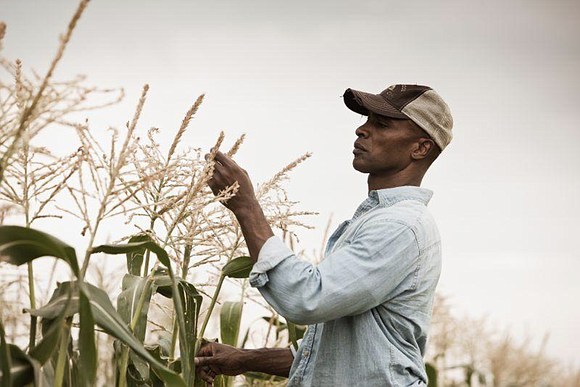A Preventable Blunder on the Black Farmers in America
Style Magazine Newswire | 7/23/2021, 11:07 a.m.

When I was in college and preparing for a volunteer trip to a rescue mission, I read a book called “When Helping Hurts.”
Authors Brian Fikkert and Steve Corbett argue that charitable work sometimes unintentionally reinforces the problems of poverty or does not do as much as it could to alleviate them.
For example, if a remote village in a foreign country wants to build a church, a group of Americans could fly in to do the work. But it might be a better use of resources for the Americans to simply send money that pays locals to do the construction themselves.
Here in the U.S., the Democratic Party appears to be serving up the latest backfiring do-gooder project, and it’s no little chapel in the rainforest.
I’m thinking of USDA’s $4 billion loan forgiveness program for socially disadvantaged farmers, which is careening toward legal ruin.
On June 23, a federal court in Florida granted a preliminary injunction that freezes activity on the program.
The lawsuit is technically still active. But as Audry Thompson, a Penn State ag law researcher, said in a podcast last month, “This is probably the end of this program.”
A preliminary injunction reflects the judge’s belief that the plaintiff — in this case, the white farmer challenging the program — will succeed on the merits of the case.
“A judge isn’t going to say, ‘Yeah, I granted that preliminary injunction X number of months ago, but now I’m going to reverse myself and say that I was wrong then,’” Brook Duer, a staff attorney at the Penn State Center for Agricultural and Shale Law, said in that podcast.
The loan forgiveness program was created in the American Rescue Plan, a ponderous pile of putative pandemic aid programs that passed in March with only Democratic votes.
Out of everything funded in that $1.9 trillion whopper, the loan forgiveness in particular stunk of pork-barrel politics.
The program sought to redress problems that well predated COVID-19, and the nascent Biden administration had recently declared racial issues a top priority.
Biden’s ag secretary nominee, Tom Vilsack, was also at pains to appease Black activists, who were riding high after last summer’s protests and who said Vilsack hadn’t done enough for civil rights during his previous tenure at USDA.
Black farmers certainly have faced disadvantages in accessing USDA programs in the past — reportedly including loan officers who rejected applications with theatrical rudeness.
But as Duer said in an earlier podcast episode, federal programs that treat people differently based on race must clear a high bar.
Such programs must be carefully targeted in response to specific episodes of intentional discrimination by the government. Statistics that merely show disparate outcomes do not suffice.
For reasons unknown, USDA’s attorneys defended the case with exactly the kinds of justifications that courts have previously rejected, Duer said.
Fault also lies with elected Democrats who tossed together such a vulnerable program in the first place.
“Congress moved with great speed to address the history of discrimination, but did not move with great care,” U.S. District Judge Marcia Morales Howard wrote in her opinion.
Over Before It Started
In its opening months, the Biden administration has rarely been this slapdash. In fact, Biden came in with an unusually coordinated plan, which involved passing certain big pieces of legislation and putting climate change on the agenda of every federal agency.
But on Black farmer aid, it seems the Democrats were going for a quick win. In so doing, they blindsided farmers with a program that needs a lot of explanation.
USDA should have done advance work explaining to white farmers that the program was not meant to spite them. It was simply an attempt to make up for the decades when white farmers could get loans but farmers of color were often unfairly blocked.
White farmers, in other words, had already received the benefits for which they were eligible; many Black farmers had not.
To head off jealousy, USDA also needed to clarify ahead of time why the program would pay more than 100% of outstanding loans. (The extra bit was to cover the tax consequences of the loan forgiveness.)
Had the Dems allowed time for thorough debate, they might also have reconsidered whether they had chosen the best way to help minority farmers.
Loan forgiveness helps only those who have certain current USDA direct or guaranteed loans. Minority farmers are out of luck if they had already paid off their loans, never pursued federal financing or, more to the point, failed to get USDA loans because of discrimination.
Even if it had been thoroughly vetted before passage, the debt relief program might have proved unpopular.
But now that Congress will likely need to decide what to do with its $4 billion botch job, a new and improved aid package for Black farmers could be downright radioactive.
For the moment, the flawed program may have served its purpose and shown that Democrats care about Black farmers. And the American Rescue Plan will still deliver $1 billion for outreach and Extension training for minority farmers.
But farmers of color aren’t going to be happy with “we tried” for long, especially if something as consequential as loan forgiveness slips out of their grasp.
The federal government has fumbled aid for Black farmers before, from the Reconstruction-era Freedmen’s Bureau to the Pigford settlement of the early 2000s.
Now, in their haste to help Black farmers, Democrats may have left them in the lurch yet again.








